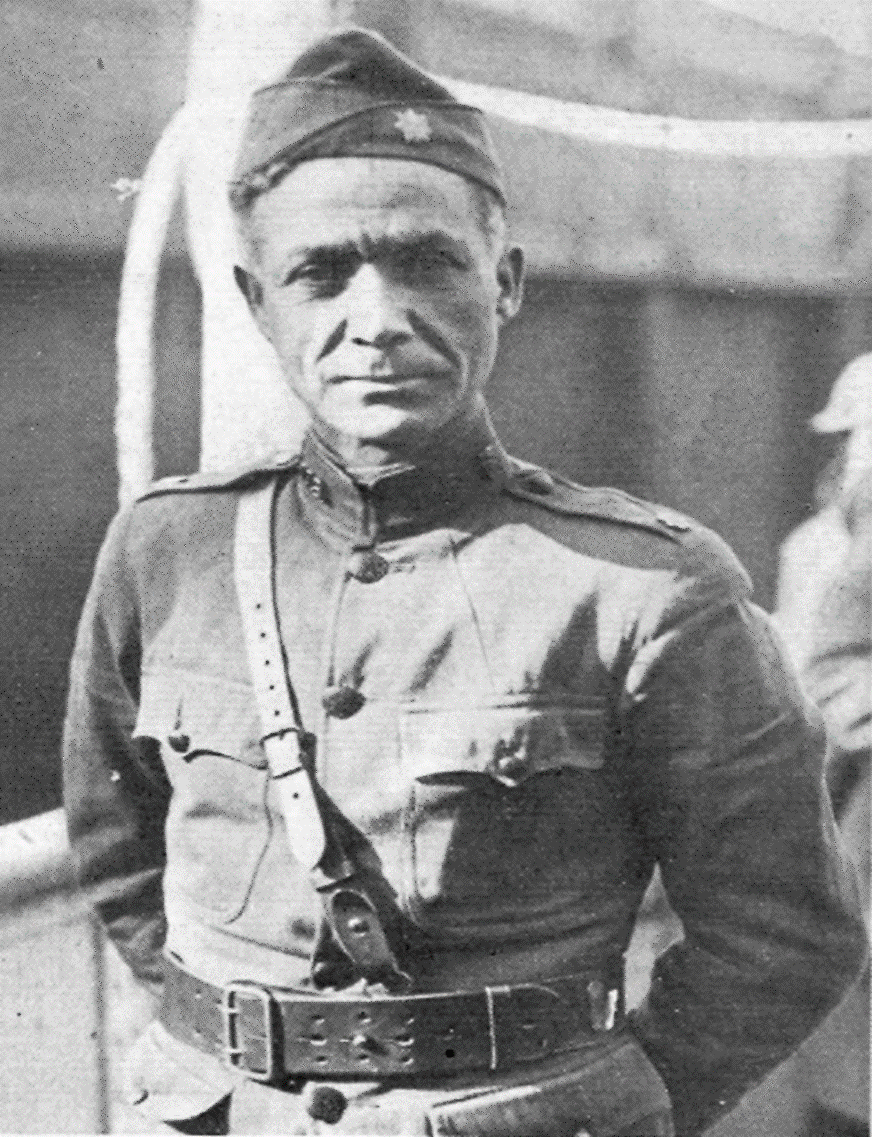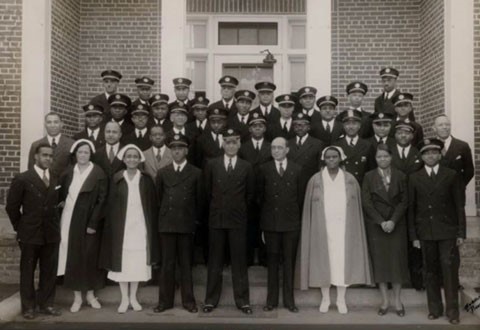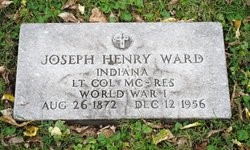WSU Ph.D. student wins approval for historical marker honoring African American medical pioneer
By Liette Gidlow

Leon Bates, Ph.D. candidate in the Department of History at Wayne State University, has won approval from the Indiana Bureau of History for his application to erect a historical marker commemorating the life and work of African American medical trailblazer, Lt. Col. Joseph H. Ward, M.D.
Mr. Bates discovered Dr. Ward's story while researching a doctoral dissertation on African American police officers in 1920s Indianapolis. Dr. Ward (1872-1956), a physician, surgeon, Army officer, and hospital administrator, became the first African American to lead a major U.S. hospital when he was appointed in 1924 as Administrator and Chief Medical Officer of Veterans Hospital #91 at Tuskegee, Alabama. His position there built on the service he rendered to the African American community in Indiana and to U.S. soldiers in France during the First World War. From 1904 to 1938, during the height of the Jim Crow era when hospitals were segregated and African Americans frequently lacked access to medical facilities, Dr. Ward owned and operated Ward's Sanitarium, a private hospital and surgery center that cared for African American patients from across central Indiana. This modern medical facility was equipped with patient rooms, an operating room, a laboratory, and an X-ray facility. After the U.S. entered WWI Dr. Ward joined the U.S. Army and was deployed to France, where he served as a surgeon with the 92nd Infantry Division "Buffalo Soldiers." In 1918 he became the first African American to lead a U.S. Army field hospital. After his service, Dr. Ward served as the head of the Tuskegee veterans' hospital until 1936

Mr. Bates says that his goal is to recover the stories of African Americans who engaged in the struggle for civil rights long before the Civil Rights Movement of the 1960s. "Many people know the names of W.E.B. DuBois, Booker T. Washington, and Ida B. Wells, but the story does not end with them," Bates said. "Joseph Ward and William Whitfield are two examples of working and professional class African Americans who lived the struggle that DuBois and the others became famous for."
Mr. Bates holds a master's degree from the University of Louisville. He is a veteran of the U.S. Army and the Indiana National Guard and a former small business owner. He is working on a history dissertation on two African American police officers in Indianapolis who were killed in the line of duty in the 1920s. The first of these, Officer William Whitfield, remains an unsolved murder. Mr. Bates is a recipient of the Dean's Diversity Fellowship from the Graduate School at Wayne State University.

Professor Liette Gidlow is the chair of his doctoral committee.
Photo credits: top left, Dr. Ward in his military uniform | provided by the U.S. Veterans Administration, Washington D.C.; middle right, Dr. Ward and staff at the Tuskegee Veterans Hospital | provided by the U.S. Veterans Administration, Washington D.C.; Dr. Ward's grave marker at Crown Hill Cemetery in Indianapolis, Indiana | photo taken by Leon Bates